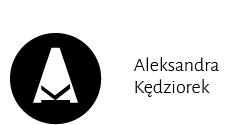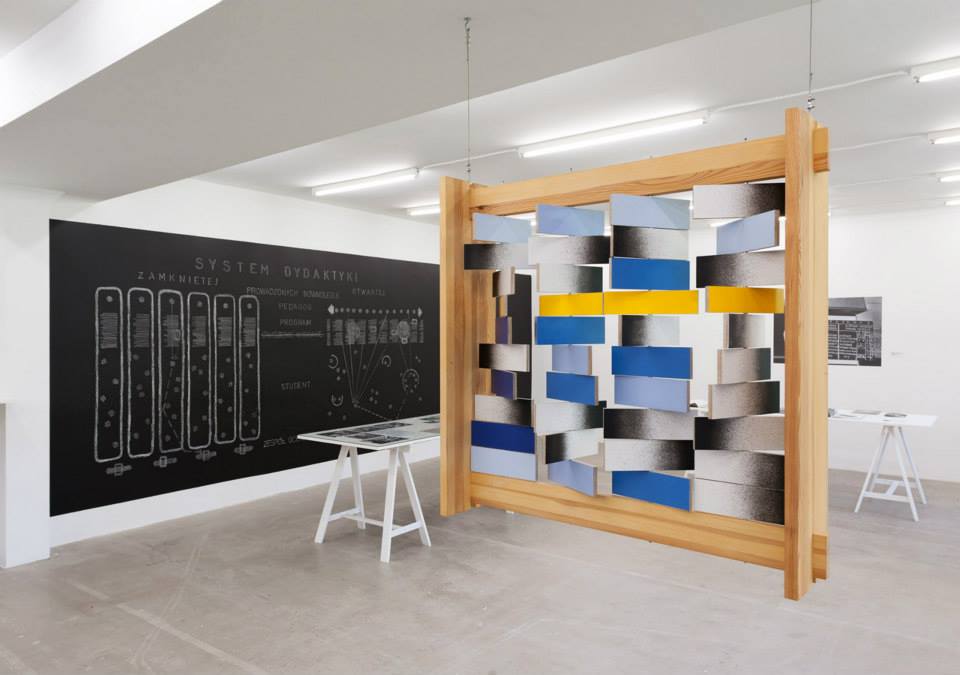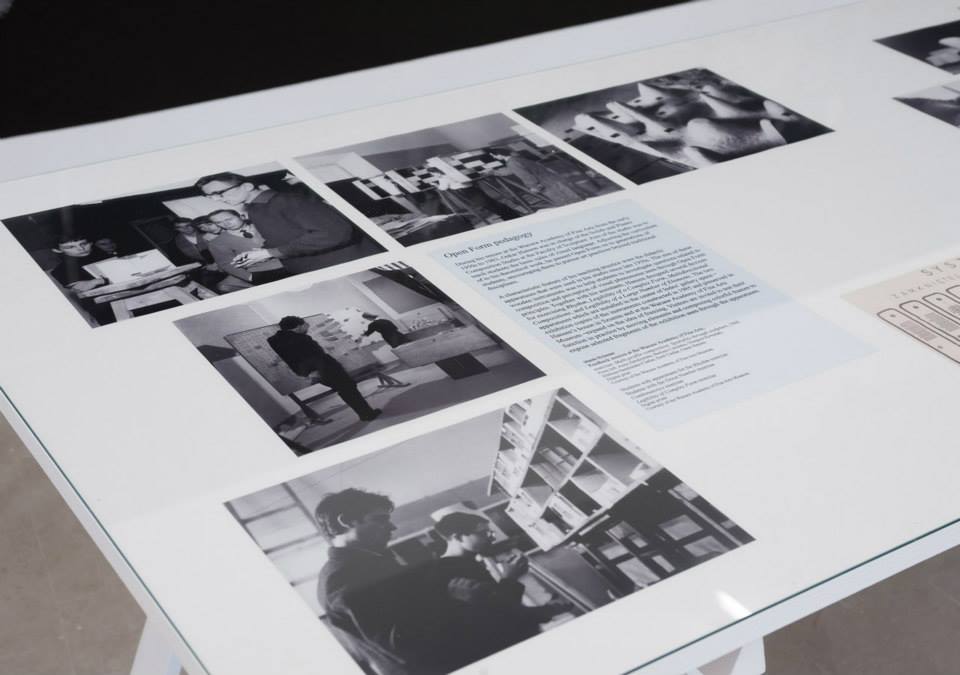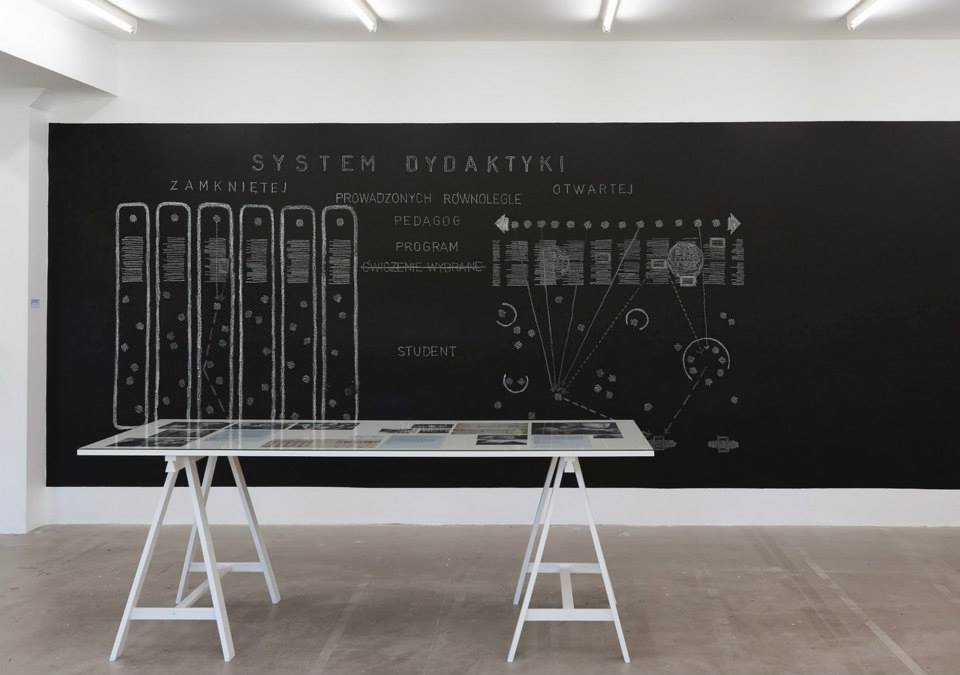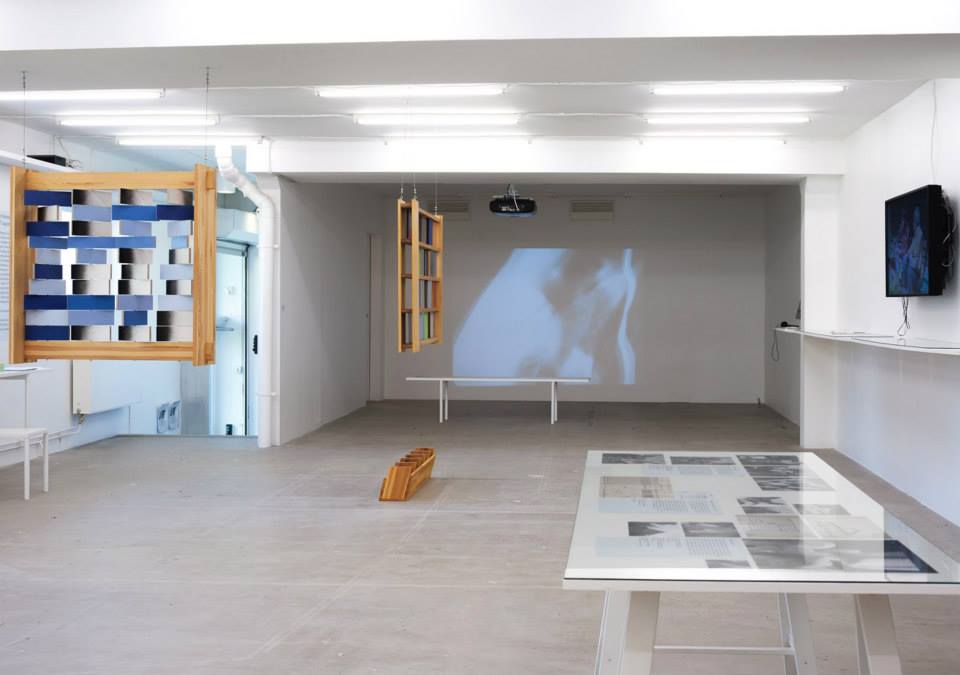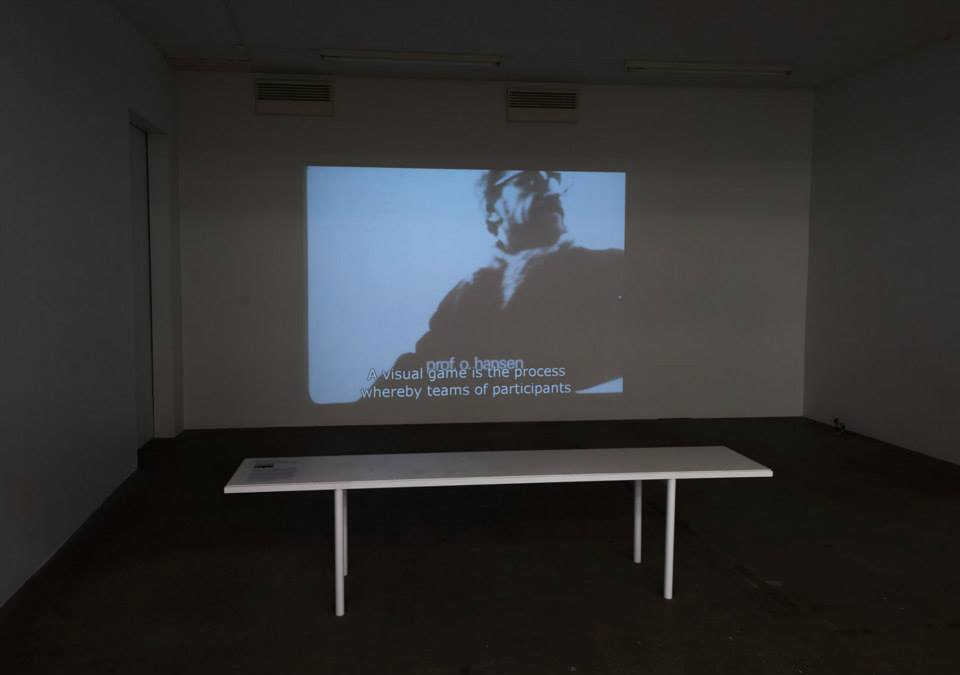an exhibition and a conference co-curated with Axel Wieder, Index – The Swedish Contemporary Art Foundation, Stockholm, 12–23.08.2015, 25–26.02.2016
With an exhibition Pedagogies of Space: Oskar Hansen and Open Form, Index launched a six-month project dedicated to the pedagogy of Open Form, created by Oskar Hansen (1922-2005). Focused on the Open Form pedagogy, developed by Hansen at the Warsaw Academy of Fine Arts between 1953 and 1983, the project investigated the models and tools that Open Form can provide for contemporary spatial practice, and primarily art and architecture education. In a six-month long process, works and projects by Hansen and his students were exhibited, tested, discussed and developed into contemporary applications.
Starting with a presentation of original materials by the architect and his collaborators, including some of his didactical apparatuses—devices used to teach basic rules of composition and to exercise perception—and film documentation of „open-air exercises“ developed in the 1970s, student groups from the Royal Institute of Art / KKH (MA Art and Architecture, Prof. Peter Lang) and Konstfack (Organizing Discourse, Lecturer Magnus Erisson and CuratorLab, Lecturer Anna Tomaszewska) investigated their relevance for today and future models of Open Form pedagogy. Hansen’s tool as well as proposals resulting from the student’s work were tested, integrated and documented within Index’s learning program with children and young people.
The two-day conference, summarizing Index’s program dedicated to Oskar Hansen’s pedagogy of Open Form, explored the notion of space in the context of experimental art and architecture education. Considering space both as a learning environment and a teaching tool, the seminar gathered postwar and contemporary examples of pedagogical practices that question and reshape established sites and modes of creative education.
Deriving from different contexts and time, those practices share their interest in space as a means to provoke changes—either to test the borders of disciplines, as in Hansen’s open-air games or Anna and Lawrence Halprin’s performative workshops, or to transform educational process through redesigning its setting, as in Hansen’s adaptation of the seat of the Warsaw Academy of Fine Arts to Open Form curriculum. Space may be used as a site to embody innovative pedagogical concepts, as in Ciudad Abierta (Open City), collectively built microutopia constructed by the students and faculty of the Architecture School of the Catholic University in Valparaiso, or as a non-site, becoming a tool to free education from its institutional ties, as in Buckminster Fuller’s nomadic teaching or contemporary self-organized academies that in their lack of attachment to particular place find an escape from neoliberal logics of result-oriented education.
In addition to presentation by researchers and writers, there were also presentations from student workshops organized in collaboration with the Kungl. Konsthögskolan and Konstfack, Stockholm, and the Art Academy of Jutland, Aarhus.
Participants:
Oscar Andrade Castro, Eva Diaz, Magnus Ericsson, Jens Evaldsson, Alberto Iacovoni, Peter Lang, Kristina Lindemann, Tor Lindstrand, Anna Molska, Christina Pech, Alina Serban, Kuba Szreder, Sam Thorne, Florian Zeyfang
Full program available here.
